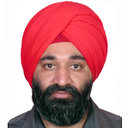Dengue-associated hypokalemic paralysis: causal or incidental?
Atslēgvārdi
Abstrakts
Dengue-associated hypokalemic paralysis is considered an important but under-emphasized neuromuscular complication of dengue virus infection. Review of the published literature reveals that 35 instances of hypokalemic paralysis associated with dengue have been recorded from the Indian subcontinent and all but two, were males. The median age of presentation is 29 years and moderate to severe grade pure motor quadriparesis is precipitated during the phase of defervescence of moderate to high-grade fever. Recovery starts within 12h of potassium supplementation and is usually complete in a couple of days. Redistribution or increased loss of potassium from the body is speculated as the pathophysiological mechanism involved in the causation of hypokalemia. It is not possible to derive the exact etiopathological correlation from the published literature either due to a lack of comprehensive reporting or inadequate work-up of the patients. Curious is the fact that only 35 patients had manifest-paralysis when more than two-thirds affected with the dengue virus exhibit hypokalemia; whether this indicates a genetically mediated channel disorder or an incidental association remains to be seen.



